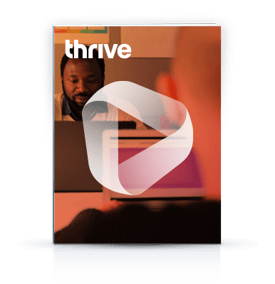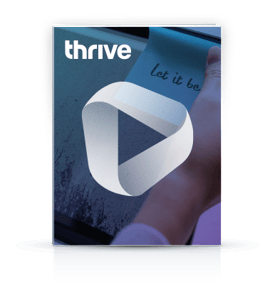One of my favorite things to do when waiting for a customer in their office is browse their book shelves. It gives me a great sense for the models and theories that they already have in their head, which gives us a good foundation for shared understanding. It's also a great opportunity for my own learning!
Digital Age Leadership Essentials
by Maureen Ennis
by Maureen Ennis
Leading with Emotional Intelligence
by Maureen Ennis
Why Learning is a Team Sport, and What You Need to do to Win
Posted by Maureen Ennis
Sep 5, 2009 5:16:00 PM
Smart, effective leaders share a common trait: the desire and ability to learn new things. To be successful in the future, and build organizations that are able to respond to continuous change, learning is a performance essential.
Business leaders need to be able to quickly learn new concepts, adopt them, and put them into practice within their organization. They also must ensure their employees are always learning.
Learning is a team sport, and winning means using the knowledge you and your team accumulate to gain competitive advantage, build a sustainable organization and achieve your vision. Here are three reasons why:
1. Effective learning requires reciprocity - interaction with others.
Every so often I meet a business owner who tells me that they don't need a peer advisory board because they read books. Now don't get me wrong... I love books, and blogs and all sorts of other content that I can get my hands on. But reading books on your own, pales in comparison to the effectiveness of reading something and then having an interactive conversation with peers to delve more deeply into the subject, how it might be relevant to your situation, and what action you can take. The act of interacting with others is called reciprocity and is a fundamental of learning. It is part of our biology since we are inherently social beings.
I am a big fan of online universities. One of the reasons they are effective is because interaction is built into the design of the course. Meetings with study groups, 1-1 conversations with peers and other similar techniques are very effective for learning. Even though the interaction is virtual, it can be more effective than the stale semi-comatose interaction we have all experienced of sitting in a room with a talking head, and not participating at all.
Online learning can be economical and effective. Just make sure your team has an opportunity to interact and continue conversations about what they've learned after watching the information. I work with teams who have unbelievable access to online content, but no one takes advantage of the courses. Make it a team event: set a time, buy pizza, watch it together, and stimulate some conversation afterward. The rewards will be tenfold.
2. Effective learning requires commitment, discipline and a game plan.
Learning is not a casual pursuit. There is a cost for learning, even if the content is free. Effective learning requires a conscious commitment to use time and resources to gain new capacities. Much like the need to practice before a game, you need to learn before you need to use the knowledge. That means you always need to be thinking ahead about the new practices and capacities you will need in the future. Then you need the discipline to devote time to the learning, even when a dozen urgent things are pulling at you.
3. Until you can put what you learned into action, you have not learned it sufficiently.
Effective learning is defined by gaining a new capacity to do something. In business, the new capacity must be relevant. Just understanding something doesn't cut it....reading about golf or Tiger Woods does not mean you can golf. Understanding is an important but preliminary step on the path to gaining new capacity. Practicing the new behavior, process or practice is essential for learning. Again, this requires others: colleagues, customers, coaches, mentors etc.
Topics: collaboration, change, HR, business owner, plan, agility, business leader, learning, performance
Thrive Insights delivered straight to your inbox
Recent Posts
Posts by Topic
- Leadership (10)
- change (10)
- business leader (9)
- agility (6)
- plan (6)
- HR (5)
- business owner (5)
- collaboration (5)
- employee engagement (4)
- working out loud (4)
- change through technology (3)
- development (3)
- interview (3)
- managing (3)
- transformation (3)
- Vision (2)
- WOL (2)
- communications (2)
- learning (2)
- manager development (2)
- performance improvement (2)
- technology (2)
- tools and technology (2)
- transition (2)
- #collabcatalyst (1)
- EEOC (1)
- Four Ps (1)
- Predictive analytics (1)
- Productivity (1)
- SWOT (1)
- Stress (1)
- culture (1)
- digital literacy (1)
- diversity (1)
- hiring (1)
- meetings (1)
- part (1)
- performance (1)
- phone screen (1)
- picture (1)
- play (1)
- process improvement (1)
- purpose (1)
- security (1)
- social business (1)
- strategy (1)
- sustainability (1)






